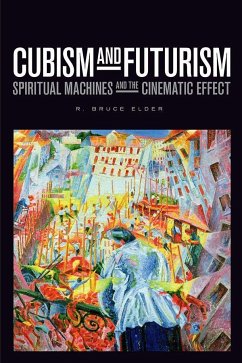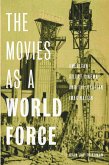Cubism and futurism were related movements that vied with each other in the economy of renown. Perception, dynamism, and the dynamism of perception - these issues passed back and forth between the two. Cubism and Futurism shows how movement became, in the traditional visual arts, a central factor with the advent of the cinema: gone were the days when an artwork strived merely to lift experience out the realm of change and flow. The cinema at this time was understood as an electric art, akin to X-rays, coloured light, and sonic energy. In this book, celebrated filmmaker and author Bruce Elder connects the dynamism that the cinema made an essential feature of the new artwork to the new science of electromagnetism. Cubism is a movement on the cusp of the transition from the world of standardized Cartesian coordinates and interchangeable machine parts to a Galvanic world of continuities and flows. In contrast, futurism embraced completely the emerging electromagnetic view of reality. Cubism and Futurism shows that the notion of energy made central to the new artwork by the cinema assumed a spiritual dimension, as the cinema itself came to be seen as a pneumatic machine.
Bitte wählen Sie Ihr Anliegen aus.
Rechnungen
Retourenschein anfordern
Bestellstatus
Storno








